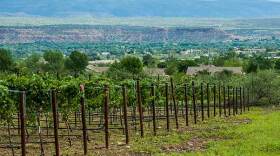In the Colorado mountains, seedlings of spruce and fir trees spring up in years with snowy winters and cool, wet summers. But those conditions have grown rarer in the last few decades.
Scientists once thought a warming climate might help seedlings of these conifers take root on chilly mountaintops. But a new study shows just the opposite.
A research group led by the University of Colorado-Boulder sampled hundreds of young Engelmann spruce and subalpine fir on the Front Range. They examined annual growth rings under a microscope to pinpoint the year each tree sprouted. Then they tracked down climate records dating back to 1940.
What they discovered was a surprise: temperature didn’t matter nearly as much as moisture. Whole generations of new trees sprouted in favorable years when a wet climate coincided with a “masting” event. That’s when adult trees produce lots of extra seeds, too many for squirrels and insects to eat.
The scientists found these so-called “establishment years” have happened less often since the mid-1970s—because of hotter summers and less snow in winters. So seedlings are struggling to get their start in life, just as adult trees are dying off due to drought.
One silver lining is that spruce and fir typically live for hundreds of years, so they have plenty of chances to drop their cones in a good year, with enough seeds for new trees.
Still, it’s clear from this study that climate change has taken a toll. One day, the forests of the Colorado Front Range might even shift into a different kind of ecosystem altogether.








